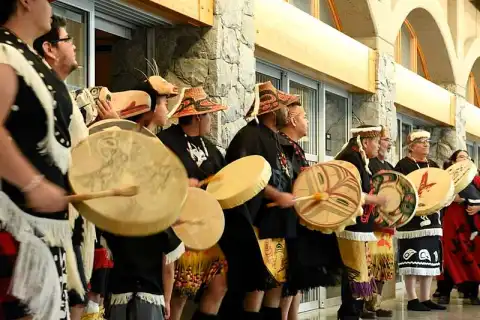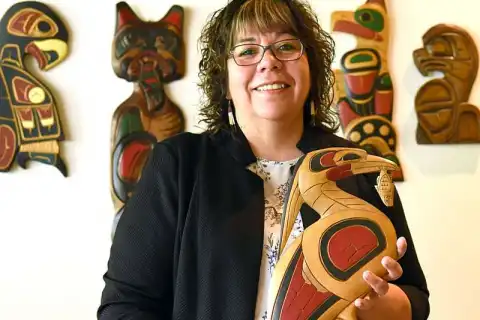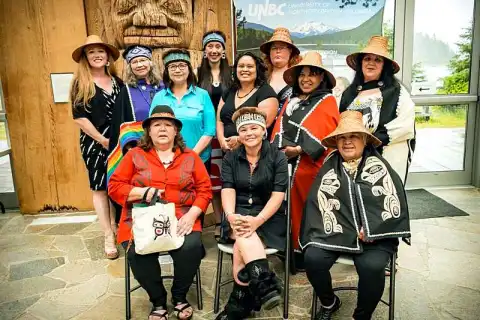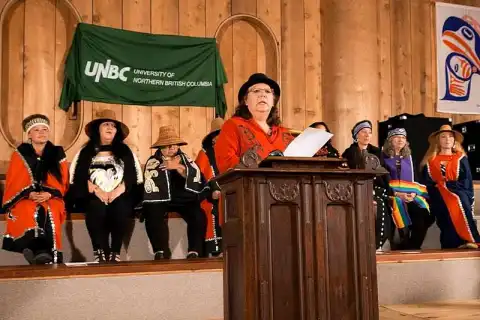Bachelor of Arts - First Nations Studies
- 4 years
- Duration
- 26,750 CAD/year
- Price
- Rolling admission
- Start
- Rolling admission
- Deadline
- Bachelor
- Degree
- Campus
- Format
- Prince George / Canada
- Location
Program description
In today's world, First Nations Studies is an important component of any good undergraduate education. It is a good degree if you want to work in education, business, public administration, law, communications, cultural property management, social services, or a variety of other fields.
You will gain an understanding of Indigenous peoples' experiences in Canada—past, present, and future. Prepare for a mix of social science courses that include traditional biology and history studies, as well as First Nations-specific topics like self-government, reconciliation, resource management, and decolonization.
After completing your undergraduate major in First Nations Studies, apply for admission to graduate programs in a variety of academic disciplines as well as many professional programs.
Program structure
Lower Division
100 and 200 Level
- The Aboriginal Peoples of Canada
- Perspectives in First Nations Studies
One of the following culture or language courses:
- A First Nations Language: Level 1
- A First Nations Language: Level 2
- Carrier Language: Level 1
- Carrier Language: Level 2
- Haisla Language (X-a'islak'ala): Level 1
- Haisla Language (X-a'islak'ala): Level 2
- Tsimshian Language (Sm'algyax): Level 1
- Tsimshian Language (Sm'algyax): Level 2
- Nisga'a Language: Level 1
- Nisga'a Language: Level 2
- A First Nations Culture: Level 1
- A First Nations Culture: Level 2
- Carrier Culture: Level 1
- Carrier Culture: Level 2
- Tsimshian Culture: Level 1
- Tsimshian Culture: Level 2
- Nisga'a Culture: Level 1
- Nisga'a Culture: Level 2
Upper Division
300 Level
- Research Methods in First Nations Studies
400 Level
- Internship in First Nations Studies
Price
- Tuition* 26,750 CAD
- Student Fees* 1,315 CAD
- Books* 1,400 CAD
*Tuition, fees and books are subject to change and vary among programs.
Requirements for applicants
- Meet UNBC's English language requirements
- Meet the international admission requirements by country or meet the admission with a General Certificate of Education (or equivalent)
- Complete the required high school course equivalencies outlined in the Domestic tab prior.
About the university
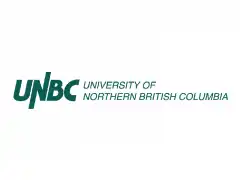
One of Canada's top universities, UNBC is situated in the breathtaking scenery of northern British Columbia.
Excellent undergraduate and graduate learning opportunities are offered by UNBC in the areas of cultures, economics, health, sciences, and the environment. We share the exhilaration of new knowledge with our students and the results of our teaching and research with the world as one of British Columbia's research-intensive institutions. UNBC is a welcome place with a warm, inclusive, and supportive learning environment in addition to cultivating and celebrating academic excellence.
The University of the North by and for the North is UNBC. Our students, alumni, teachers, staff, and the communities we serve all feel a strong sense of ownership, purpose, and adventure as a result of our goal. We are also Canada's Green UniversityTM, paving the road for everyone's future to be more sustainable.
Vision
To affect people's lives and communities in the North and around the world while being Canada's top destination university in terms of personal character.
Mission
To have an impact on the world today and inspire future leaders.
UNBC's Academic Structure
- Faculty of Environment
- Faculty of Business and Economics
- Faculty of Human and Health Sciences
- Faculty of Indigenous Studies, Social Sciences and Humanities
- Faculty of Science and Engineering
- Division of Medical Sciences
Read more about University of Northern British Columbia, Canada
